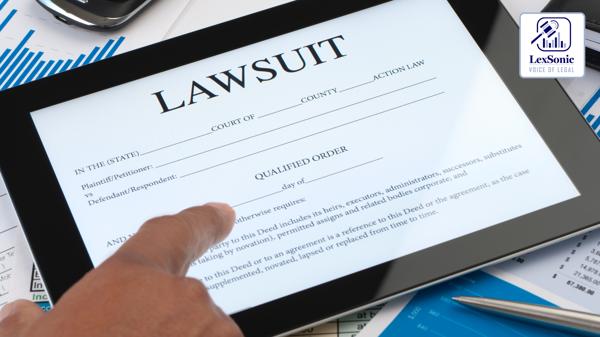In the case of Sapna & Another v/s Shivesh Garg the appellants (a husband and wife duo) challenging a judgment passed by the learned District Judge at Tis Hazari Courts, Delhi, the issue of leave to defend in a summary suit under Order XXXVII of the Civil Procedure Code (CPC) was deliberated upon. The appellants sought to defend a suit for the recovery of Rs. 7,77,500/- filed by the respondent, claiming that the entire loan amount had already been repaid. However, the trial court rejected their application for leave to defend, finding that their defense was frivolous. This article examines the legal principles surrounding the granting or denial of leave to defend in such cases.
Background of the Case:
The respondent filed a summary suit under Order XXXVII CPC seeking the recovery of Rs. 7,77,500/-, which included a loan amount of Rs. 5,00,000/- advanced to the appellants in April 2020. The loan was accompanied by a loan agreement executed in June 2020. The appellants had also issued a post-dated cheque as security for repayment. The cheque was dishonored due to the appellants allegedly stopping payment.
Upon service of the summons for judgment, the appellants filed an application for leave to defend under Order XXXVII Rule 3(5) CPC. Although the application was delayed by five days, the trial court condoned the delay and proceeded to examine the merit of the defense presented.
The appellants claimed to have repaid the loan in full through monthly installments between August 2020 and July 2022, including an interest of Rs. 1,00,000/-. They also contended that the respondent did not return the loan agreement or the post-dated cheque despite the repayment.
The Trial Court’s Ruling:
The trial court dismissed the appellants' application for leave to defend, primarily on the grounds that the appellants had admitted to receiving the loan of Rs. 5,00,000/- and issuing a cheque for repayment. The appellants, however, failed to provide any receipts or evidence of the repayment of the loan, such as bank transactions or cash receipts.
Further scrutiny revealed that the document referred to by the appellants (Annexure A12), which was claimed to demonstrate the repayment, did not substantiate their defense. It was merely a typed copy of a WhatsApp screenshot listing unrelated jewelry articles and cash entries, with no direct reference to the loan repayment. The court found this defense to be unconvincing, ultimately dismissing the application for leave to defend.
Legal Principles of Granting Leave to Defend:
The legal framework governing the grant of leave to defend under Order XXXVII CPC is well-established. As reiterated by the Supreme Court in the case of IDBI Trusteeship Services Ltd. vs. Hubtown Ltd., leave to defend is granted based on the presence of a substantial or triable defense. The trial court must determine whether the defense raised is plausible or merely a frivolous one. The Supreme Court in various judgments has clarified the following principles:
Substantial Defense: If the defendant has a defense that is likely to succeed, they are entitled to unconditional leave to defend.
Triable Issues: If the defense raises triable issues, the defendant may be granted unconditional leave to defend. However, the trial court may impose conditions if there is doubt about the genuineness of the defense.
Frivolous Defenses: If the defense is found to be frivolous or vexatious, the defendant will be denied leave to defend, and the plaintiff is entitled to a judgment forthwith.
Admission of Liability: If the defendant admits part of the claim, leave to defend may still be denied unless the admitted amount is deposited in court.
Analysis of the Appellants’ Defense:
In the present case, the appellants admitted to receiving the loan amount of Rs. 5,00,000/- and executing the loan agreement, which included the issuance of the repayment cheque. However, their claim that they repaid the entire loan amount in monthly installments was unsubstantiated. They failed to produce any receipts or documents to prove the repayment, and the alleged document they provided did not substantiate their claims.
Moreover, the explanation that the repayment cheque was signed blank as security, with the promise of return after repayment, was not credible.
The trial court was justified in its assessment that the defense raised by the appellants was frivolous. Their failure to provide any substantial evidence, such as bank transfers or receipts, further weakened their position. Additionally, their claim of returning the cheque and loan agreement after repayment lacked any corroborative evidence.
Conclusion:
In conclusion, the denial of leave to defend in this case was legally justified. The appellants failed to raise a genuine, triable issue and provided insufficient evidence to support their defense. The case highlights the importance of having concrete and reliable documentation when defending a claim in a summary suit under Order XXXVII CPC. The trial court, in this instance, correctly dismissed the application for leave to defend, reinforcing the principle that frivolous and unsubstantiated defenses should not be allowed to delay the expeditious disposal of commercial disputes. The appeal, therefore, was dismissed, upholding the trial court’s decision.

